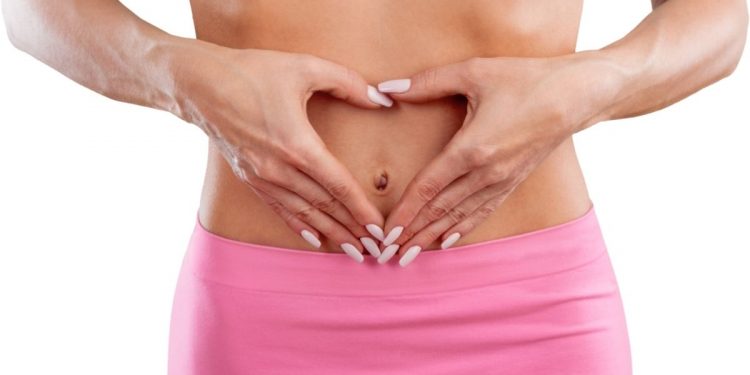The gut-brain connection is no laughing matter; it can cause anxiety and vice versa. Have you ever had an emotionally draining experience? Do you ever feel nauseated in particular situations or feel the sensation of having butterflies in your stomach? Idioms serve a purpose. Emotions have an impact on the gastrointestinal tract. Anger, worry, grief, and elation are just a few of the emotions that can cause discomfort in the gut. The brain affects both the stomach and the intestines directly. During a meal, for instance, the stomach’s juices may be released before the food is even consumed. This relationship is reciprocal. A troubled intestine, like a troubled brain, can transmit information to the stomach. Therefore, abdominal or stomach discomfort may indicate anxiety, stress, or depression.
Neurotransmitters
Neurotransmitters also connect your gut and brain. The brain produces neurotransmitters that regulate feelings and emotions. Serotonin, for example, is a neurotransmitter that helps regulate your body clock and contributes to emotions of happiness. Interestingly, your gut cells and the trillions of microorganisms that live there also make many of these neurotransmitters. Guts produce significant amounts of serotonin. Gamma-aminobutyric acid (GABA) is a neurotransmitter produced by gut bacteria that helps modulate sensations of dread and anxiety.
Know about the connection
The millions of distinct varieties of “good” and “bad” bacteria that inhabit the microbiome are generally in a balance, with helpful bacteria helping to prevent harmful bacteria from overgrowing and harming your health. Inflammation, intestinal permeability, or lack of diversity of bacteria are contributing factors to microbiome imbalances that can result in an overgrowth of harmful bacteria. Researchers sometimes face the chicken or egg question when attempting to explain the connection between gut bacteria and ill health.
Ways to improve your gut health
Good night sleep
Aside from improving your mood and eradicating dark circles, good sleep habits can also help your gut health. According to Dr. Khodadadian, sleep is incredibly important because it helps your body to rest and rejuvenate. Also, sleep allows your digestive system to recover and your body to replenish its energy levels, allowing it to function properly. Furthermore, research suggests that the microbiota releases sleep-inducing neurotransmitters while the gut generates melatonin, according to Shapiro. So, it is obvious that health, sleep, and bacteria are all linked.
Make whole foods a priority
Prioritizing healthy, whole foods is another strategy to improve your gut health. Shapiro says that processed meals, preservatives, sugar, and other factors can harm our overall health and do not contribute to the development or maintenance of a healthy gut microbiome. A diet rich in fiber, heart-healthy fats, lean protein, antioxidants, vitamins, and minerals can help enhance health, energy, and digestion. You can, however, work with a dietician to develop an eating plan that is tailored to your needs, lifestyle, and gut health.
Exercise
Exercising on a regular basis is beneficial to heart health and weight loss or maintenance. According to research, it may also promote gut health, which could aid in the control of obesity. Working out may help to improve the diversity of animals. A 2014 study indicated that athletes have a wider variety of intestinal flora than nonathletes. The athletes, on the other hand, ate a different diet than the control group, which could explain the microbiota discrepancies. Adults should engage in at least 150 minutes of moderate-intensity activity each week, as well as muscle-strengthening activities on two or more occasions, according to the Physical Activity Guidelines for Americans.
Reduce stress
Major stressful situations, according to research, might have a long-term impact on your gut health. Furthermore, chronic stress causes far more damage to your gut than acute stress. Dysbiosis in the gut is the result of daily stress, such as the pressure of a job, illness, or death of a loved one, poor diet, and lack of sleep. An unbalanced stomach can lead to more serious issues like inflammation, recurrent illness, exhaustion, autoimmune illnesses, and other chronic diseases. That is why taking time to de-stress and exercise self-care is so important.
Fix your gut, fix your brain
Currently, the majority of research examining the gut-brain axis and the use of probiotics to combat mental health disorders like schizophrenia and bipolar disorder is preliminary, preclinical, and does not demonstrate an absolute effect. Although preliminary research suggests promising results, a bigger population, and human clinical trials are needed to establish which individuals may benefit most from the probiotic or “psych biotic” treatment of mental health illnesses. Additionally, the best way to deliver these treatments. In addition to aiding digestion and boosting your immune system, the gut microbiome is extremely important for your health. An imbalance of harmful and beneficial microorganisms in the intestine can lead to weight gain, excessive sugar levels, high cholesterol, and other illnesses. Eat a wide variety of fruits, vegetables, whole grains, and fermented foods to assist encourage the growth of healthy microorganisms in your gut.











Discussion about this post